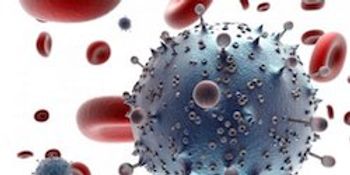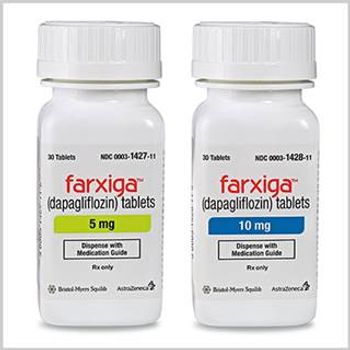
Narcolepsy type 1 (NT1) may be caused by an autoimmune T-cell response to orexins and could be triggered by flu antigens, according to study findings.

Narcolepsy type 1 (NT1) may be caused by an autoimmune T-cell response to orexins and could be triggered by flu antigens, according to study findings.

Although the researchers state that more studies are needed to validate their findings, they found that patients who also had HIV, HBV, or HCV who were being treated with ICI therapy had similar rates of efficacy and toxicity to patients without chronic viral infections.

The Center for Biosimilars, a sister site of The American Journal of Managed Care® (AJMC®), reports on the most controversial topics in the biosimilars industry in 2019.

Other studies coming out of Europe have also found SB4 to work well for the majority of patients who switched from the originator etanercept.

For those with mild to moderate chronic obstructive pulmonary disease (COPD), researchers suggest that antibiotic stewardship focus on reducing and optimizing antibiotic use in patients with severe COPD who have a significant risk of drug resistance, according to study findings.

Nigeria has a population of almost 204 million. Of those, 3.1% of adults, or 3.5 million, are living with HIV. The accompanying death anxiety of people living with HIV and AIDS has not been studied in depth.

The biosimilar candidate treats paroxysmal nocturnal hemoglobinuria, a rare blood condition that features destruction of red blood cells, thrombosis, and impaired bone marrow function.

Coverage of our peer-reviewed research and news reporting in the healthcare and mainstream press.

The platelet-derived growth factor receptor alpha (PDGFRA) exon 18 mutation occurs in close to 6% of patients with gastrointestinal stromal tumors (GIST), the most common being the D842V mutation, for which there is no effective, approved treatment. The drug previously received breakthrough therapy, fast track, and orphan drug designations.

California is looking to launch a generic drug label; workplace suicides are on the rise; multisensory stimulation therapy could help those with OCD.

The authors calculate that Medicaid expansion saved up to 8100 lives between 2014 and 2016, as the Affordable Care Act (ACA) took full effect.

This week, the top managed care stories included cancer deaths falling for the 25th straight year; a study finding no link between talc powder and ovarian cancer; a poll finding 1 in 4 patients with Parkinson disease may be misdiagnosed.

Hospitalizations due to heart failure (HF) were associated with a risk for kidney failure (KF) that was 11.4-times greater compared with patients who did not have cardiovascular disease (CVD). Among a group of CVDs that also included atrial fibrillation, coronary heart disease, and stroke, HF was associated with the highest risk of developing subsequent KF.

A new coronavirus may be to blame for a pneumonia outbreak in China; costs to give birth increase, even with employer coverage; HHS declares a public health emergency in Puerto Rico after a devasting earthquake.

Priority review was based on phase 3 results from DAPA-HF, presented in Paris at the European Society of Cardiology and published in the New England Journal of Medicine.

While prevalence rates of psoriasis are lower among the Latino population compared with the white and black populations in the United States, Latinos are shown to be disproportionately affected by poorer quality of life and intensified disease severity, according to study findings.

This week, the FDA’s Center for Drug Evaluation and Research (CDER) released its annual report, Advancing Health Through Innovation: New Drug Therapy Approvals, outlining new drugs approved or marketed in America for the first time.

Most residents of Kansas face surprise out-of-network medical bills; drugstore chains fight back in the ongoing opioid epidemic; young adults face a greater stroke risk if they use both e-cigarettes and cigarettes.

The use of interferon-beta (IFN-beta) by pregnant patients with multiple sclerosis poses no risk to an infant’s birth weight, length, or head circumference, according to a recent study.

The overall cancer death rate declined by 29% from 1991 to 2017, with a 2.2% decline from 2016 to 2017 serving as the largest single-year drop in reported cancer mortality, according to research published today; however, obesity-related cancer deaths are rising and prostate cancer deaths remain stagnant.

In the first clinical trial of its kind, Danish researchers investigated the efficacy of a combination treatment of ruxolitinib and low-dose pegylated interferon-α2 (PEG-INF α2) in patients with polycythemia vera and myelofibrosis, according to a study published in Haematologica.

In a poll of people with Parkinson disease, more than 1 in 4 (26%) participants reported having been misdiagnosed, with a further 21% having to see their general provider 3 times before being referred to a specialist.

Researchers outline numerous benefits of outfitting recipients of cataract surgery with blue-light filtering artificial intraocular lenses (BLF IOLs), as opposed to non-BLF lenses, in a Clinical Ophthalmology study published in December.

Specific cancer drugs were shown to inhibit cell signaling processes that contribute to neutrophils, immune cells that cause inflammation to the lungs and serve as the main driver of lung damage in patients with chronic obstructive pulmonary disease (COPD), according to study findings.

In a study published December 26 in the Journal of Clinical Medicine, researchers tested the effects of cathodal transcranial direct current stimulation in the occipital cortex of 42 patients with episodic migraine.

California lawmakers propose vaping ban targeting all flavored tobacco products; abstinence from alcohol shown to benefit patients with atrial fibrillation through reduced episode recurrence; Novo Nordisk launches authorized generic insulins with plans to improve affordability of the drug.

A JAMA study covering data from more than 250,000 women found no statistically significant link between the use of powder in the genital area and risk of ovarian cancer among women. This study comes as public outcry has led to scrutiny of one of the nation’s leading talc powder producers, Johnson & Johnson.

In a statement published today by he American Heart Association, researchers provide key resources needed to diagnose and treat fulminant myocarditis successfully.

Caris Life Sciences, a leader in somatic testing on cancer tumor cells, has joined forces with Ambry Genetics to offer its 67-gene test that evaluates a patient’s hereditary risk for cancer.

The FDA expanded the use of Fiasp, a fast-acting insulin aspart injection, in children as young as 2 years to treat diabetes. First approved for adults in 2017, Novo Nordisk said it is the only "mealtime insulin injection that does not have a pre-meal dosing recommendation.”

259 Prospect Plains Rd, Bldg H
Cranbury, NJ 08512
© 2025 MJH Life Sciences®
All rights reserved.
